CBD vs THCA for Deep Sleep: Which is More Effective?
In our fast-paced modern world, achieving quality deep sleep has become increasingly elusive for millions of people. While we spend roughly one-third of our lives sleeping, many struggle to reach the restorative deep sleep stages essential for physical recovery, memory consolidation, and optimal health. As traditional sleep aids often come with unwanted side effects and dependency risks, more individuals are turning to cannabinoids like CBD and THCA as natural alternatives for improving sleep quality.
The promise of cannabinoids for sleep enhancement lies in their ability to work with our body's endocannabinoid system, potentially addressing multiple factors that contribute to poor sleep quality. From anxiety and pain to inflammation and circadian rhythm disruption, these plant compounds offer a holistic approach to sleep improvement that goes beyond simply inducing drowsiness.
This comprehensive guide examines the effectiveness of CBD vs THCA deep sleep solutions, helping you understand which cannabinoid might be better suited for your specific sleep needs. We'll explore the science behind how these compounds affect sleep architecture, review available research, and provide practical guidance for optimizing your deep sleep naturally.
Understanding Deep Sleep Stages and Their Importance
The Sleep Cycle Breakdown
To understand how CBD THCA deep sleep solutions work, we must first examine the complex architecture of human sleep. Sleep occurs in cyclical patterns throughout the night, with each cycle lasting approximately 90-110 minutes and consisting of four distinct stages:
Stage 1 (Light Sleep): This transitional phase between wakefulness and sleep typically lasts 5-10 minutes. Brain waves begin to slow down, and muscle activity decreases as the body prepares for deeper sleep stages.
Stage 2 (Light Sleep): Comprising about 45% of total sleep time, this stage features further decreased brain wave activity, reduced heart rate, and lower body temperature. Sleep spindles and K-complexes appear on EEG recordings, indicating the brain's active suppression of external stimuli.
Stage 3 (Deep Sleep/Slow Wave Sleep): This crucial stage represents 15-20% of healthy adult sleep and is characterized by the slowest brain waves (delta waves). During this phase, the body undergoes critical restorative processes including tissue repair, immune system strengthening, and growth hormone release.
REM Sleep: Although not technically "deep sleep," REM (Rapid Eye Movement) sleep accounts for 20-25% of sleep time and is essential for memory consolidation, emotional processing, and brain development.
Why Deep Sleep Matters for Health and Recovery
Deep sleep serves as the body's primary restoration period, making it perhaps the most critical sleep stage for overall health. During this phase, several vital processes occur simultaneously:
Physical Restoration: Growth hormone production peaks during deep sleep, facilitating tissue repair, muscle growth, and cellular regeneration. This is why adequate deep sleep is essential for athletic recovery and wound healing.
Memory Consolidation: The brain transfers information from short-term to long-term memory during deep sleep, converting daily experiences into permanent memories and clearing metabolic waste through the glymphatic system.
Immune System Strengthening: Deep sleep enhances immune function by promoting the production of cytokines, proteins that help fight infection and inflammation. Chronic deep sleep deprivation significantly increases susceptibility to illness.
Metabolic Regulation: Hormones controlling hunger (leptin and ghrelin) are regulated during deep sleep, with insufficient deep sleep contributing to weight gain and metabolic dysfunction.
How Sleep Disorders Disrupt Deep Sleep
Modern lifestyle factors and sleep disorders can significantly impact deep sleep quality and duration. Common disruptors include:
- Stress and Anxiety: Elevated cortisol levels can prevent the brain from entering deep sleep stages
- Chronic Pain: Physical discomfort interrupts sleep architecture, reducing deep sleep duration
- Sleep Apnea: Breathing interruptions fragment sleep cycles, preventing sustained deep sleep periods
- Environmental Factors: Light pollution, noise, and temperature fluctuations can disrupt natural sleep patterns
- Substance Use: Alcohol, caffeine, and certain medications can alter sleep architecture
Understanding these disruptions is crucial when considering CBD vs THCA for better sleep quality, as both compounds may address multiple underlying causes simultaneously.
CBD's Impact on Deep Sleep: Research and Mechanisms
Scientific Research on CBD and Sleep Architecture
Cannabidiol (CBD) has garnered significant attention in sleep research, with multiple studies examining its effects on various aspects of sleep quality. A landmark 2019 study published in The Permanente Journal found that 66.7% of participants experienced improved sleep scores within the first month of CBD use, with sustained improvements observed throughout the study period.
Research specifically examining CBD THCA sleep quality has revealed that CBD may influence sleep through multiple pathways:
Anxiety Reduction: A 2019 study involving 72 adults found that CBD significantly reduced anxiety scores in 79.2% of participants within the first month, indirectly improving sleep quality by addressing one of the primary barriers to restful sleep.
Pain Management: CBD's anti-inflammatory and analgesic properties can reduce physical discomfort that interferes with deep sleep. A 2018 review in Frontiers in Pharmacology highlighted CBD's potential for managing chronic pain conditions that commonly disrupt sleep.
Circadian Rhythm Regulation: Preliminary research suggests CBD may help regulate circadian rhythms by interacting with receptors involved in the sleep-wake cycle, potentially improving the timing and quality of deep sleep stages.
Specific Studies on Deep Sleep Stages
While research on CBD's effects on specific sleep stages is still emerging, several studies have provided valuable insights:
A 2014 animal study published in FEBS Letters found that CBD administration increased total sleep time and reduced sleep latency (time to fall asleep). More importantly, the study suggested that CBD might increase the duration of deep sleep phases while reducing REM sleep interruptions.
Human studies have been more limited but equally promising. A 2017 review in Current Neuropharmacology examined multiple clinical trials and found consistent evidence that CBD could improve sleep quality, though the authors noted the need for more research specifically targeting sleep architecture.
The emerging research on CBD THCA REM sleep interactions suggests that while CBD may slightly reduce REM sleep duration, it appears to enhance the quality and restorative value of deep sleep stages, potentially resulting in more refreshing sleep overall.
Mechanisms of Action for Deep Sleep Enhancement
CBD's sleep-promoting effects likely result from its interaction with multiple physiological systems:
Endocannabinoid System Modulation: CBD indirectly influences CB1 and CB2 receptors, which play roles in sleep regulation, pain perception, and anxiety modulation.
Serotonin System Interaction: CBD's partial agonism of 5-HT1A receptors may contribute to its anxiolytic and sleep-promoting effects, as serotonin plays a crucial role in sleep-wake regulation.
GABA Enhancement: Some research suggests CBD may enhance the activity of GABA, the brain's primary inhibitory neurotransmitter, promoting relaxation and facilitating the transition to deep sleep stages.
Adenosine Signaling: CBD may influence adenosine receptors, which are involved in promoting sleepiness and regulating sleep pressure throughout the day.
Optimal CBD Dosing for Deep Sleep Enhancement
Determining the optimal CBD dosage for deep sleep improvement requires careful consideration of individual factors and gradual titration. Research suggests that sleep benefits may occur across a wide dosage range, with some studies showing effectiveness at doses as low as 25mg and others requiring 160mg or more.
Starting Protocol:
- Begin with 10-15mg of CBD taken 30-60 minutes before bedtime
- Gradually increase by 5-10mg every 3-4 days until desired effects are achieved
- Monitor sleep quality using subjective measures and sleep tracking devices when available
Factors Affecting Dosage:
- Body weight and metabolism
- Severity of underlying sleep issues
- Concurrent medications or supplements
- Individual sensitivity to cannabinoids
Users exploring CBD or THCA which gives deeper sleep should note that CBD's effects may be dose-dependent, with lower doses potentially being more alerting while higher doses tend to be more sedating.
THCA and Sleep Quality: Emerging Research and Potential
Understanding THCA's Unique Properties
Tetrahydrocannabinolic acid (THCA) represents an intriguing frontier in cannabinoid sleep research. As the non-psychoactive precursor to THC, THCA offers potential therapeutic benefits without the intoxicating effects associated with activated THC. This unique profile makes it particularly appealing for individuals seeking sleep improvement without cognitive impairment.
Unlike CBD, which has been extensively studied, research on CBD THCA deep sleep applications remains limited. However, the available evidence suggests that THCA may offer distinct advantages for certain aspects of sleep quality.
Limited Research on THCA and Sleep Stages
While comprehensive clinical studies on THCA's sleep effects are lacking, preliminary research and anecdotal evidence provide valuable insights into its potential mechanisms and benefits:
Anti-inflammatory Properties: A 2013 study published in Bioorganic & Medicinal Chemistry Letters demonstrated THCA's potent anti-inflammatory effects, which could indirectly improve sleep quality by reducing inflammation-related sleep disruption.
Neuroprotective Effects: Research has shown THCA may possess neuroprotective properties that could support healthy sleep architecture by protecting against neurodegeneration and oxidative stress that can interfere with sleep quality.
Endocannabinoid System Modulation: While THCA doesn't directly bind to CB1 and CB2 receptors like activated THC, it may influence the endocannabinoid system through alternative pathways that could impact sleep regulation.
Theoretical Mechanisms for Deep Sleep Improvement
Based on THCA's known pharmacological properties, several mechanisms could explain its potential sleep benefits:
Inflammatory Pathway Modulation: Chronic inflammation is increasingly recognized as a significant disruptor of sleep architecture. THCA's ability to inhibit inflammatory enzymes like COX-1 and COX-2 may help create optimal conditions for deep sleep.
Oxidative Stress Reduction: By acting as an antioxidant, THCA may protect brain cells from damage that could interfere with normal sleep processes, potentially supporting healthier sleep patterns over time.
Indirect Neurotransmitter Effects: While not directly psychoactive, THCA may influence neurotransmitter systems involved in sleep regulation through its metabolic byproducts and cellular effects.
Anti-inflammatory Effects and Sleep Quality Connection
The relationship between inflammation and sleep quality is bidirectional and well-established. Chronic inflammation can disrupt sleep architecture, while poor sleep can increase inflammatory markers, creating a problematic cycle. THCA's potent anti-inflammatory properties may help break this cycle by:
- Reducing pro-inflammatory cytokines that can interfere with deep sleep
- Supporting the body's natural anti-inflammatory processes during sleep
- Potentially reducing inflammation-related pain that disrupts sleep
For individuals whose sleep issues stem from inflammatory conditions, deep sleep CBD vs THCA comparisons may favor THCA due to its more pronounced anti-inflammatory profile.
Anecdotal Evidence from Users
While clinical research remains limited, user reports provide valuable insights into THCA's real-world sleep effects. Many individuals using high-quality THCA products report:
- More consistent sleep onset
- Reduced sleep disruptions from pain or discomfort
- Improved morning alertness and recovery
- Less sleep fragmentation compared to other cannabinoids
These anecdotal reports, while not scientifically validated, suggest that THCA may offer unique benefits for certain individuals struggling with CBD THCA sleep quality issues.
Sleep Tracking and Measurement: Monitoring Your Progress
How to Measure Deep Sleep Improvements
Accurately measuring improvements in deep sleep quality requires both objective and subjective assessment methods. Understanding these measurement approaches is crucial for anyone comparing CBD vs THCA deep sleep effectiveness.
Objective Measurement Methods:
Sleep Tracking Devices: Modern wearable devices use accelerometry, heart rate variability, and sometimes skin temperature to estimate sleep stages. Popular options include:
- Oura Ring: Provides detailed sleep stage breakdowns and recovery metrics
- Fitbit devices: Offer sleep stage tracking and sleep score calculations
- Apple Watch: Features sleep tracking with basic stage identification
- Garmin watches: Provide comprehensive sleep analysis including Body Battery metrics
Professional Sleep Studies: Polysomnography (PSG) remains the gold standard for sleep measurement, using EEG, EMG, and other sensors to precisely identify sleep stages and quality metrics.
Home Sleep Tests: Simplified versions of professional sleep studies can be conducted at home using specialized devices that monitor breathing, oxygen levels, and movement patterns.
Sleep Tracking Devices and Apps
When evaluating CBD THCA REM sleep and deep sleep improvements, consistency in measurement is key. Choose one primary tracking method and use it consistently throughout your trial period:
Device Selection Criteria:
- Battery life adequate for nightly tracking
- Comfortable for extended wear
- Proven accuracy for sleep stage detection
- Integration with health apps for data analysis
Mobile Apps: Several smartphone apps can supplement wearable devices:
- Sleep Cycle: Uses sound analysis to estimate sleep stages
- Pillow: Comprehensive sleep tracking with heart rate integration
- AutoSleep: Automatic sleep detection for Apple Watch users
Subjective vs Objective Sleep Quality Measures
While objective measurements provide valuable data, subjective sleep quality assessment remains equally important:
Subjective Quality Measures:
- Pittsburgh Sleep Quality Index (PSQI): Validated questionnaire assessing sleep quality over the past month
- Epworth Sleepiness Scale: Measures daytime sleepiness levels
- Sleep diary tracking: Daily logs of sleep timing, quality, and factors affecting sleep
Key Subjective Metrics to Monitor:
- Sleep onset time (how long it takes to fall asleep)
- Number of nighttime awakenings
- Morning alertness and energy levels
- Daytime fatigue and concentration
- Overall sleep satisfaction
What to Monitor When Trying CBD or THCA
When comparing which is better for deep sleep CBD or THCA, track these specific metrics:
Pre-Treatment Baseline (2 weeks):
- Establish consistent measurement protocols
- Document current sleep patterns and quality
- Note any existing sleep aids or medications
- Record lifestyle factors affecting sleep
During Treatment (4-6 weeks minimum):
- Daily sleep quality ratings (1-10 scale)
- Sleep onset time and total sleep duration
- Number and duration of nighttime awakenings
- Morning recovery and energy levels
- Side effects or unusual experiences
- Dosage and timing of cannabinoid administration
Key Performance Indicators:
- Percentage of time in deep sleep (if tracked by device)
- Sleep efficiency (time asleep vs. time in bed)
- REM sleep duration and quality
- Heart rate variability during sleep
- Morning cognitive performance
Factors Affecting Deep Sleep Response to Cannabinoids
Individual Variation in Cannabinoid Response
One of the most critical factors in CBD vs THCA for better sleep quality effectiveness is individual biological variation. Genetic polymorphisms in cannabinoid receptors, metabolizing enzymes, and neurotransmitter systems can significantly impact how individuals respond to cannabinoid therapy.
Genetic Factors Influencing Response:
- CYP450 enzyme variations affecting cannabinoid metabolism
- CB1 and CB2 receptor density and sensitivity
- COMT gene variants influencing dopamine and sleep regulation
- 5-HTTLPR polymorphisms affecting serotonin system response
Physiological Factors:
- Body mass index and fat distribution (cannabinoids are lipophilic)
- Liver function and metabolic rate
- Existing endocannabinoid system tone
- Hormonal status and age-related changes
Baseline Sleep Health: Individuals with severe sleep disorders may require different approaches than those with mild sleep quality issues. Those with sleep apnea, restless leg syndrome, or circadian rhythm disorders may need to address underlying conditions alongside cannabinoid therapy.
Timing of Administration for Optimal Deep Sleep
The timing of CBD THCA deep sleep administration can significantly impact effectiveness. Both CBD and THCA have different onset times and duration of action that must be considered:
CBD Timing Considerations:
- Sublingual administration: 15-45 minutes onset
- Oral consumption: 60-120 minutes onset
- Duration: 4-8 hours depending on dose and individual metabolism
- Optimal timing: 60-90 minutes before desired sleep time
THCA Timing Considerations:
- Generally faster onset than CBD when consumed sublingually
- May have shorter duration of action
- Individual variation in metabolism and response
- May require experimentation to find optimal timing
Circadian Rhythm Optimization:
- Consider natural melatonin production timing
- Account for evening light exposure affecting natural sleep onset
- Coordinate with other sleep hygiene practices
- Monitor for next-day effects that might indicate timing adjustments needed
Dosage Considerations for Sleep Architecture
Finding the optimal dose for deep sleep CBD vs THCA requires careful attention to sleep architecture effects:
CBD Dosage Patterns:
- Low doses (5-25mg): May increase alertness initially
- Moderate doses (25-75mg): Often optimal for sleep onset and quality
- High doses (75mg+): May increase sedation but could affect REM sleep
- Ultra-high doses: May cause next-day grogginess
THCA Dosage Considerations:
- Limited research on optimal dosing ranges
- Individual response variation appears significant
- May require lower doses than CBD for similar effects
- Potential for tolerance development over time
Titration Strategies:
- Start with minimal effective dose
- Increase gradually every 3-4 days
- Monitor both beneficial and adverse effects
- Consider cycling protocols to prevent tolerance
- Adjust based on sleep tracking data and subjective reports
Lifestyle Factors That Enhance Cannabinoid Effects
Maximizing the benefits of CBD or THCA which gives deeper sleep requires attention to complementary lifestyle factors:
Sleep Hygiene Optimization:
- Consistent sleep and wake times
- Cool, dark, quiet sleep environment
- Limited screen time before bed
- Comfortable mattress and pillows
- Regular exercise (but not close to bedtime)
Dietary Considerations:
- Avoid large meals 3 hours before sleep
- Limit caffeine after 2 PM
- Consider magnesium and other sleep-supporting nutrients
- Timing of cannabinoid consumption with meals
Stress Management:
- Regular meditation or relaxation practices
- Journaling or worry time earlier in the day
- Progressive muscle relaxation techniques
- Breathing exercises before bed
Environmental Optimization:
- Blue light filtering glasses or apps
- Blackout curtains or eye masks
- White noise machines or earplugs
- Optimal room temperature (65-68°F)
Drug Interactions and Considerations
Understanding potential interactions is crucial for safe and effective use of cannabinoids for sleep:
Common Medication Interactions:
- Sedating medications: May enhance drowsiness
- Blood thinners: CBD may affect metabolism
- Seizure medications: Potential for altered levels
- Blood pressure medications: May enhance hypotensive effects
Supplements and Natural Products:
- Melatonin: May have synergistic effects
- Valerian root: Potential for enhanced sedation
- Magnesium: May complement cannabinoid effects
- L-theanine: May enhance relaxation without increased sedation
Alcohol and Substance Considerations:
- Alcohol can disrupt sleep architecture and may interact unpredictably with cannabinoids
- Nicotine is a stimulant that can interfere with sleep quality
- Caffeine can counteract sleep-promoting effects
Real-World Effectiveness: User Experiences and Clinical Observations
User Testimonials and Case Studies
Real-world effectiveness of CBD THCA sleep quality solutions varies considerably among individuals, but patterns emerge from user experiences and clinical observations:
Positive Response Patterns: Many users of high-quality CBD products report improvements within 1-2 weeks of consistent use. Common benefits include:
- Reduced sleep onset time (falling asleep faster)
- Fewer middle-of-night awakenings
- Improved subjective sleep quality
- Better morning alertness and energy
- Reduced anxiety around bedtime
THCA User Experiences: Users of premium THCA products often report different benefit profiles:
- More sustained sleep throughout the night
- Reduced inflammation-related sleep disruption
- Less morning grogginess compared to traditional sleep aids
- Improved recovery from physical activity
- Better tolerance with minimal side effects
Individual Variation Examples:
Case Study 1: A 45-year-old professional with chronic stress and anxiety found 50mg of CBD taken 60 minutes before bed significantly improved sleep onset and reduced nighttime worry. Sleep tracking showed a 23% increase in deep sleep duration over 8 weeks.
Case Study 2: A 38-year-old athlete with inflammation-related sleep disruption achieved better results with THCA, reporting improved recovery and reduced pain-related wake-ups. Objective measures showed improved sleep efficiency from 72% to 88%.
Case Study 3: A 52-year-old experiencing perimenopause-related sleep issues found alternating between CBD and THCA provided optimal results, using CBD for anxiety-driven insomnia and THCA for inflammation-related disruption.
Clinical Observations from Sleep Specialists
Healthcare providers working with patients using cannabinoids for sleep have made several important observations:
Effectiveness Factors:
- Patients with anxiety-predominant sleep issues often respond better to CBD
- Those with pain or inflammation-related sleep problems may prefer THCA
- Combination approaches sometimes outperform single-cannabinoid protocols
- Success rates improve when cannabinoids are combined with sleep hygiene education
Timeline Expectations:
- Initial effects may appear within 3-7 days
- Optimal benefits typically develop over 2-4 weeks
- Some individuals require 6-8 weeks to see maximum benefit
- Periodic dose adjustments may be necessary
Common Challenges:
- Finding optimal dosing requires patience and systematic approach
- Quality and consistency of products significantly impacts results
- Some patients experience initial activation before sedation
- Individual response patterns may change over time
Comparison with Traditional Sleep Aids
When comparing CBD vs THCA deep sleep solutions to conventional sleep medications, several distinctions emerge:
Advantages of Cannabinoids:
- Lower risk of physical dependence
- Fewer cognitive side effects the next day
- May address underlying causes (anxiety, pain, inflammation) rather than just symptoms
- Generally better tolerance profile
- Potential for maintaining natural sleep architecture
Conventional Sleep Aid Comparison:
Benzodiazepines: While effective for sleep onset, these medications can suppress deep sleep stages and REM sleep, potentially reducing sleep quality despite increasing sleep duration.
Z-drugs (Ambien, Lunesta): May cause next-day cognitive impairment and have significant dependency potential, unlike CBD THCA REM sleep solutions.
Antihistamines: Often cause morning grogginess and may lose effectiveness over time, while quality cannabinoids tend to maintain benefits with proper cycling.
Melatonin: May complement cannabinoid therapy but doesn't address underlying issues like anxiety or pain that disrupt sleep architecture.
Long-term Effectiveness Considerations
Sustained benefits from which is better for deep sleep CBD or THCA depend on several factors:
Tolerance Development:
- CBD appears to have low tolerance potential for sleep applications
- THCA tolerance patterns are less well-understood but may be minimal
- Cycling protocols may help maintain effectiveness
- Individual genetic factors influence tolerance development
Sustained Benefit Factors:
- Consistent product quality and dosing
- Ongoing attention to sleep hygiene
- Regular assessment and dose adjustment
- Addressing any underlying health issues
Long-term Safety Considerations:
- Both CBD and THCA appear to have excellent safety profiles for long-term use
- Regular monitoring by healthcare providers is recommended
- Periodic "drug holidays" may help maintain sensitivity
- Quality sourcing becomes increasingly important for long-term users
Optimization Strategies for Maximum Deep Sleep Benefits
Best Practices for Deep Sleep Enhancement
Maximizing the effectiveness of CBD THCA deep sleep solutions requires a comprehensive approach that goes beyond simply taking cannabinoids. The following evidence-based strategies can significantly enhance outcomes:
Protocol Development:
- Establish consistent baseline measurements for 1-2 weeks before starting
- Choose one cannabinoid initially rather than combining multiple compounds
- Maintain detailed sleep diaries including dosage, timing, and subjective quality
- Use objective sleep tracking when possible
- Plan for at least 8-week evaluation periods before making major changes
Timing Optimization:
- Take CBD 60-90 minutes before desired sleep time
- For THCA, start with 45-60 minutes and adjust based on individual response
- Maintain consistent timing even on weekends
- Consider splitting doses if using higher amounts
- Monitor for optimal absorption timing relative to meals
Environmental Setup: Transform your sleep environment to complement cannabinoid effects:
- Room temperature between 65-68°F
- Blackout curtains or sleep masks
- High-quality mattress and pillows appropriate for your sleep position
- Minimize noise with earplugs or white noise
- Remove electronic devices or use airplane mode
Combining with Sleep Hygiene Practices
The most successful CBD vs THCA for better sleep quality outcomes occur when cannabinoids are integrated with proven sleep hygiene practices:
Pre-Sleep Routine Development:
- Begin wind-down routine 1-2 hours before bed
- Include relaxation techniques like gentle yoga, meditation, or reading
- Take cannabinoids at the same point in your routine each night
- Avoid stimulating activities, bright lights, and screens
- Consider journaling to clear mental clutter
Daily Habits That Support Cannabinoid Effectiveness:
- Wake up at the same time daily, even on weekends
- Get natural sunlight exposure within first hour of waking
- Exercise regularly but not within 4 hours of bedtime
- Limit caffeine to early hours and avoid after 2 PM
- Manage stress through regular mindfulness or relaxation practices
Dietary Considerations:
- Avoid large meals 3 hours before sleep
- Consider light snacks with protein and complex carbohydrates if needed
- Stay hydrated throughout the day but taper fluids before bed
- Be aware that high-fat meals may enhance cannabinoid absorption
- Some users find taking cannabinoids with a small amount of fat increases effectiveness
Cycling and Tolerance Prevention
Preventing tolerance is crucial for maintaining long-term benefits from deep sleep CBD vs THCA protocols:
CBD Cycling Strategies:
- Consider 5 days on, 2 days off weekly cycles
- Some users benefit from alternating higher and lower dose days
- Monthly breaks of 3-7 days may help reset sensitivity
- Monitor for changes in effectiveness over time
- Adjust cycling based on individual response patterns
THCA Considerations:
- Limited data on tolerance patterns, but cycling may be beneficial
- Consider alternating with CBD to maintain effectiveness of both
- Monitor for changes in anti-inflammatory benefits over time
- Some users find THCA maintains effectiveness longer than CBD
Combination Approaches:
- Alternate between CBD and THCA on different nights
- Use lower doses of each when combining
- Consider seasonal approaches based on individual needs
- Some find micro-dosing throughout the day plus evening dose effective
When to Adjust Your Approach
Recognizing when and how to modify your CBD or THCA which gives deeper sleep strategy is essential for optimization:
Signs You May Need Dose Adjustments:
- Sleep benefits plateauing after initial improvement
- Increased morning grogginess
- Return of previous sleep issues
- Changes in life circumstances affecting sleep needs
- Development of new health conditions
Adjustment Strategies:
- Increase doses gradually in 5-10mg increments
- Try different timing relative to bedtime
- Consider switching between CBD and THCA
- Evaluate product quality and consistency
- Assess whether lifestyle factors have changed
When to Consider Professional Help:
- Sleep issues persist despite 8+ weeks of consistent cannabinoid use
- Development of new or worsening sleep symptoms
- Significant daytime impairment continues
- Concerns about medication interactions
- Need for comprehensive sleep study evaluation
Quality Considerations: The effectiveness of your sleep protocol depends heavily on product quality. When selecting high-quality CBD products or premium THCA offerings, consider:
- Third-party lab testing for potency and purity
- Consistent manufacturing processes
- Appropriate extraction methods
- Proper storage and handling
- Transparent sourcing and production information
Frequently Asked Questions
Q: How long does it take to see improvements in deep sleep with CBD or THCA? A: Most users notice initial improvements within 3-7 days, with optimal benefits developing over 2-4 weeks of consistent use. Some individuals may require 6-8 weeks to experience maximum benefit.
Q: Can I use CBD and THCA together for better sleep? A: While some users report benefits from combining cannabinoids, it's generally recommended to try each individually first to understand your response. If combining, start with lower doses of each and monitor effects carefully.
Q: Will CBD or THCA cause next-day drowsiness? A: High-quality cannabinoids typically don't cause significant next-day impairment when dosed appropriately. If you experience morning grogginess, consider reducing the dose or adjusting timing.
Q: How do I know if CBD or THCA is working for my deep sleep? A: Look for improvements in sleep onset time, reduced nighttime awakenings, better morning energy, and enhanced daytime alertness. Sleep tracking devices can provide objective data on sleep stages and quality.
Q: Can I develop tolerance to CBD or THCA for sleep? A: CBD appears to have low tolerance potential for sleep applications. THCA tolerance patterns are less studied but may also be minimal. Cycling protocols can help maintain long-term effectiveness.
Q: Are there any side effects I should watch for? A: Both CBD and THCA are generally well-tolerated. Potential side effects may include changes in appetite, mild digestive upset, or initial feelings of drowsiness. Consult healthcare providers if you experience persistent adverse effects.
Q: How do I choose between CBD and THCA for deep sleep? A: Consider your primary sleep disruptors: CBD may be better for anxiety-related sleep issues, while THCA might be preferable for inflammation or pain-related sleep problems. Individual experimentation is often necessary.
Conclusion: Optimizing Your Deep Sleep Naturally
The quest for better deep sleep through cannabinoids represents an exciting frontier in natural wellness. Both CBD and THCA offer unique pathways to improved sleep quality, each with distinct advantages for different individuals and sleep challenges.
CBD has emerged as a well-researched option for those whose sleep issues stem primarily from anxiety, stress, or general difficulty with sleep onset and maintenance. Its ability to promote relaxation while supporting natural sleep architecture makes it an excellent choice for many seeking CBD THCA deep sleep solutions.
THCA, while less studied, shows particular promise for individuals whose sleep disruption relates to inflammation, pain, or physical recovery needs. Its potent anti-inflammatory properties and unique mechanism of action may provide deep sleep CBD vs THCA advantages for specific populations.
The key to success with either cannabinoid lies in:
- Personalized Approach: Understanding your individual sleep challenges and response patterns
- Quality Products: Investing in third-party tested, consistently manufactured cannabinoids from reputable sources
- Comprehensive Strategy: Combining cannabinoids with proven sleep hygiene practices
- Patient Optimization: Allowing adequate time for benefits to develop while making gradual adjustments
- Consistent Monitoring: Using both objective and subjective measures to track progress
For those ready to explore these natural sleep solutions, consider starting with high-quality CBD products or THCA options from trusted sources. Remember that the journey to optimal CBD THCA sleep quality is highly individual, and what works best for one person may differ for another.
Whether you choose CBD, THCA, or find benefit in alternating between both, the potential for achieving deeper, more restorative sleep naturally is within reach. By combining the therapeutic potential of cannabinoids with sound sleep practices and patient experimentation, you can work toward the quality sleep that supports optimal health, recovery, and well-being.
The future of CBD vs THCA deep sleep research continues to evolve, promising even more targeted and effective approaches. As our understanding deepens, so too does the potential for personalized sleep optimization strategies that can transform not just how we sleep, but how we live and thrive each day.
Sweet dreams and deeper sleep await those willing to explore the natural potential of cannabinoids for sleep enhancement.

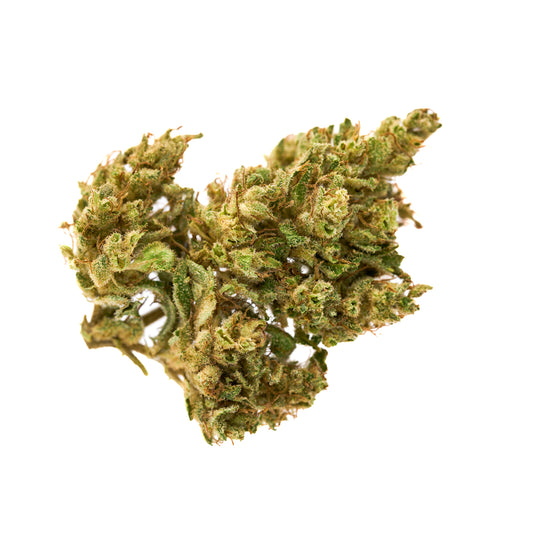
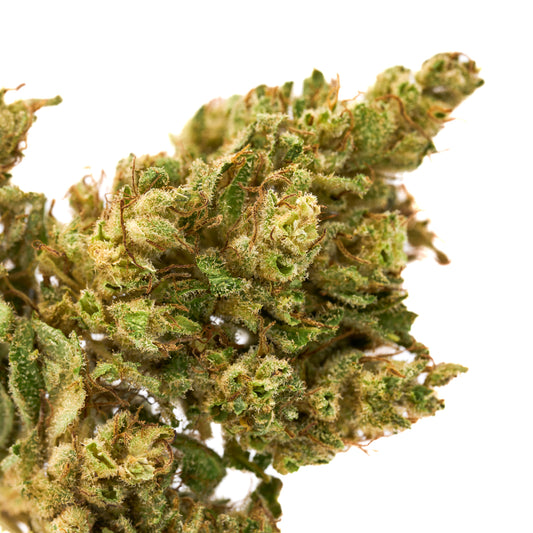
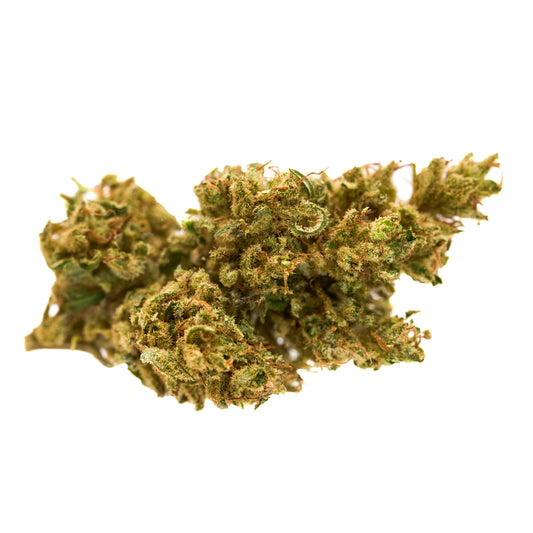
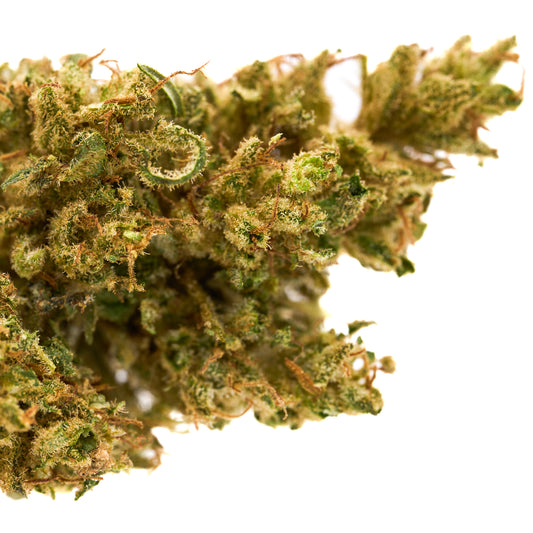
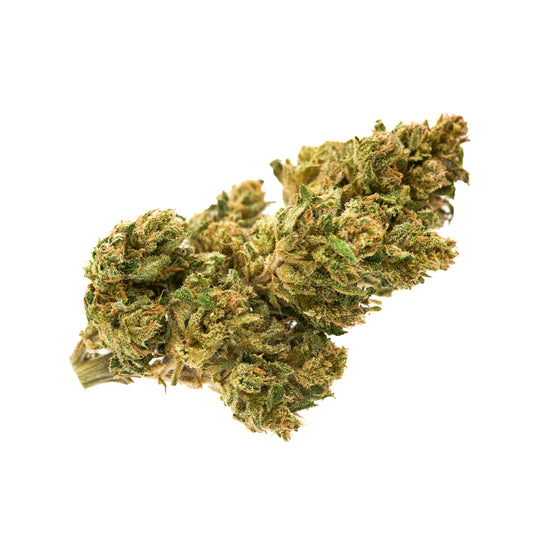
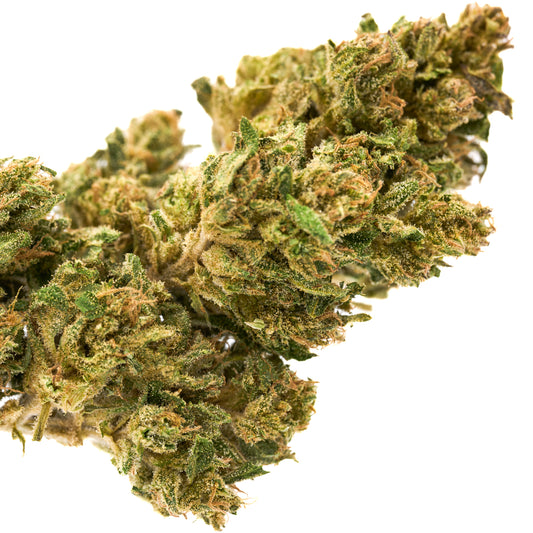



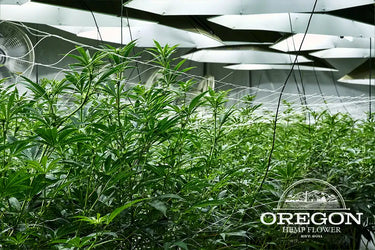

Leave a comment
Please note, comments need to be approved before they are published.